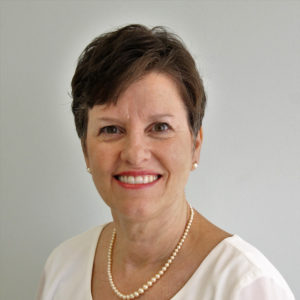Offering continuing education benefits LTC communities
Developing relationships with potential referral sources is one of the most important duties of a senior living executive. Positioning a senior living facility as a progressive leader in the industry among referral sources can impact an organization’s reputation and, ultimately, its bottom line. With nearly one million Americans currently living in assisted living facilities and that number expected to rise, executive directors are always searching for innovative ways to reach referral sources and develop a positive rapport.
For many referral sources, particularly social workers, certification and continuing education (CE) are requirements that usually come at a high cost. Due to a social worker’s important role as a gatekeeper in influencing families and seniors, Blair House Senior Living in Macon, Ga., found that offering something of value—CE credits—would help acquaint referral sources with its community while providing these professionals with valuable content on elder care law and the issues surrounding it.
 State laws require social workers and other professionals to receive CE to stay abreast of new developments and maintain a high standard of care. Although requirements differ for each state and each profession, these CE courses may cost as much as $150. Courses on relevant topics are sometimes hard to come by. With the cost of CE courses climbing, some LTC communities are now providing credit programs at no cost to social workers, allowing them to fulfill their requirements while they learn more about these communities.
State laws require social workers and other professionals to receive CE to stay abreast of new developments and maintain a high standard of care. Although requirements differ for each state and each profession, these CE courses may cost as much as $150. Courses on relevant topics are sometimes hard to come by. With the cost of CE courses climbing, some LTC communities are now providing credit programs at no cost to social workers, allowing them to fulfill their requirements while they learn more about these communities.
SUPPORTING THE SOCIAL WORKER’S ROLE
Social workers, who are regularly in contact with doctors and trust officers as well as seniors and their families, play an important role in the transition to assisted living and long-term care. Whether they work as a discharge planner, are hospice social workers or private geriatric care managers, they are expected to know and advise on LTC options. Frequently, this occurs after a major health issue. Families and caregivers look to social workers as trusted advisors and take their recommendations seriously.
From the point of view of the senior living community, offering CEU (continuing education unit) courses at the community gives social workers the opportunity to tour and learn about the community’s programming and unique offerings. Not only do the CEU courses benefit social workers and those they care for, but they support development of a referral relationship. With 113,890 employed as social workers nationwide in hospitals, nursing care facilities, home healthcare services and local government sectors, there is a large audience for CEU courses.
A SUCCESS STORY
As National Social Worker’s Month approaches each March, Blair House Senior Living gears up to provide its annual CEU courses to local social workers. Its first event gave Blair House a head start in developing loyal referral sources in the community and providing excellent programming to the sources in return.
Blair House sought the help of CEU Concepts to offer educational courses to social workers while also making sure all of the paperwork was handled correctly. CEU Concepts completes all licensure board paperwork that must be approved through the Association of Social Work Boards (ASWB) for each attendee. For these reasons, Blair House recommends using a third-party organization that specializes in organizing CEU programs.
Using its own resources to minimize costs, Blair House recruited a volunteer speaker, Patrick C. Smith of the Smith Law Firm in Macon. Smith is an expert in elder law and focuses on wealth preservation strategies, Medicaid planning, estate planning, wills, trusts and probate and trust administration. CEU Concepts vetted Smith, confirming his qualifications through the governing body of social workers. Blair House chose the topic for its course to be elder law and the issues surrounding it.
The planning process took about two months, a time frame Blair House recommends as the minimum for other communities planning to offer CEU courses. The CEU approval process can cost more if not enough time is allotted. Blair House used online registration and drew more than 50 professionals to the event, an impressive turnout for a city the size of Macon. It spent $1,500 on the event and used the program as an opportunity to offer short tours of the facility to all attendees as well as a program and materials about the community.
Blair House will continue to provide CEU courses for social workers in Macon. While elder law was the focus of this year’s event, the community plans to introduce new topics each year to allow healthcare professionals to stay current with healthcare trends. By working with a third-party organization, and using social media and online communications to reach local social workers and coordinating with area associations to drive traffic to the event, Blair House continues to reap the benefits of its annual CEU program. Blair House’s vested interest in the success of local social workers proved valuable for all parties involved.
DeAnn Young is regional manager of Senior Management Advisors (SMA), operator of full-service independent living, assisted living and Alzheimer’s care residential communities in Georgia and Florida. SMA’s services include consultation, management, development and renovation of residential communities. Young can be reached at dyoung@smaservices.net.
I Advance Senior Care is the industry-leading source for practical, in-depth, business-building, and resident care information for owners, executives, administrators, and directors of nursing at assisted living communities, skilled nursing facilities, post-acute facilities, and continuing care retirement communities. The I Advance Senior Care editorial team and industry experts provide market analysis, strategic direction, policy commentary, clinical best-practices, business management, and technology breakthroughs.
I Advance Senior Care is part of the Institute for the Advancement of Senior Care and published by Plain-English Health Care.
Related Articles
Topics: Articles , Executive Leadership , Facility management










